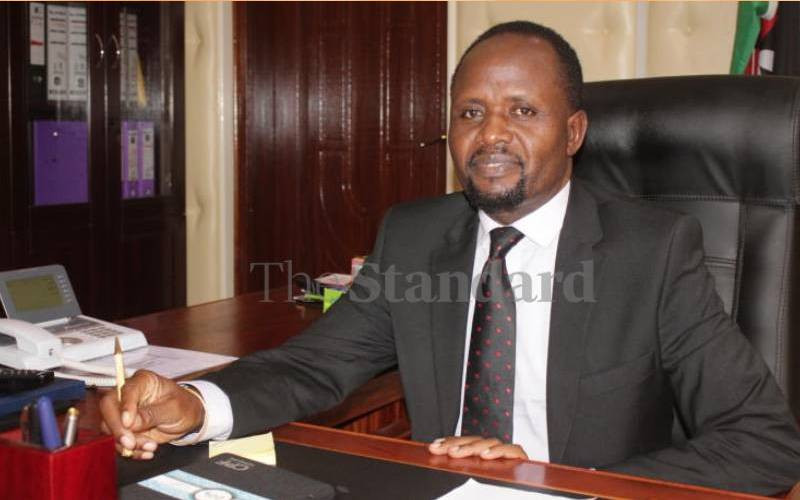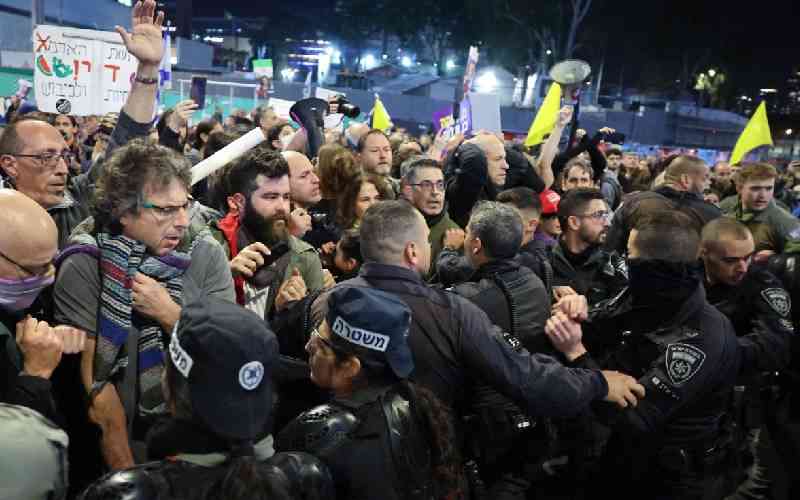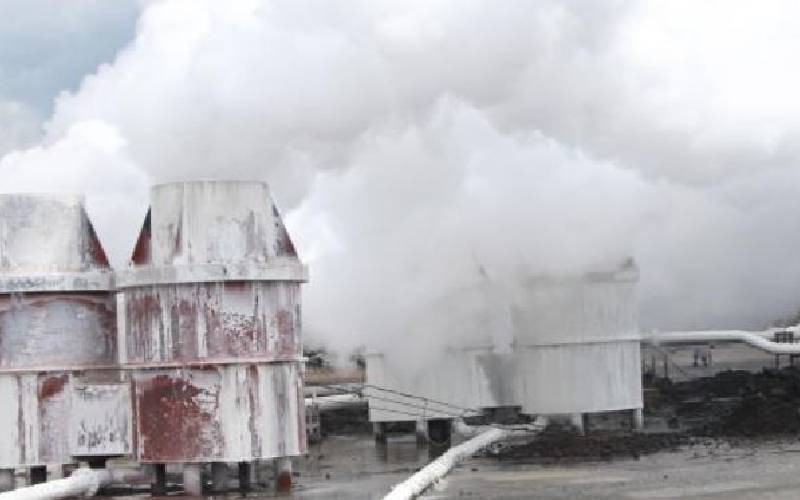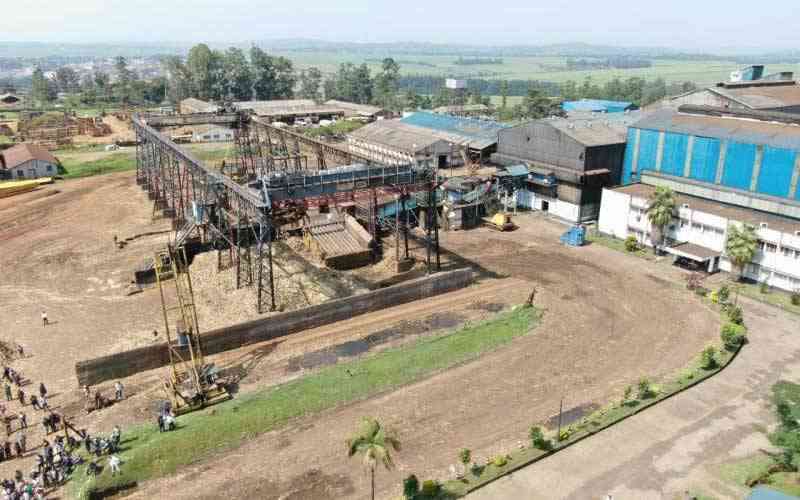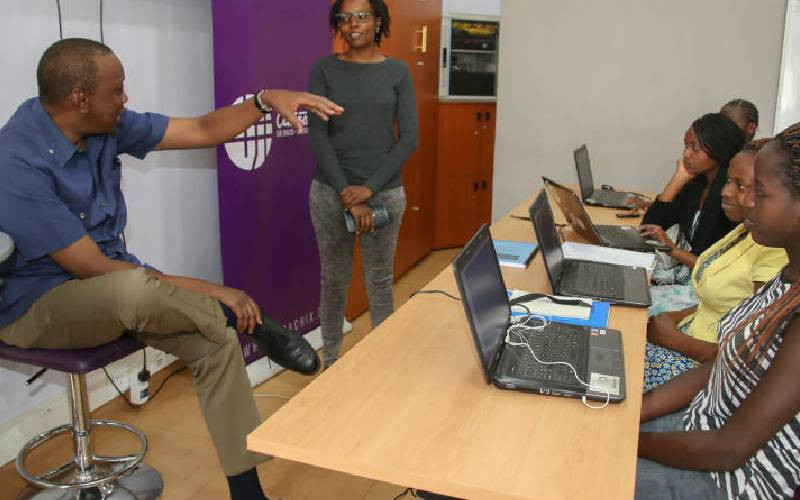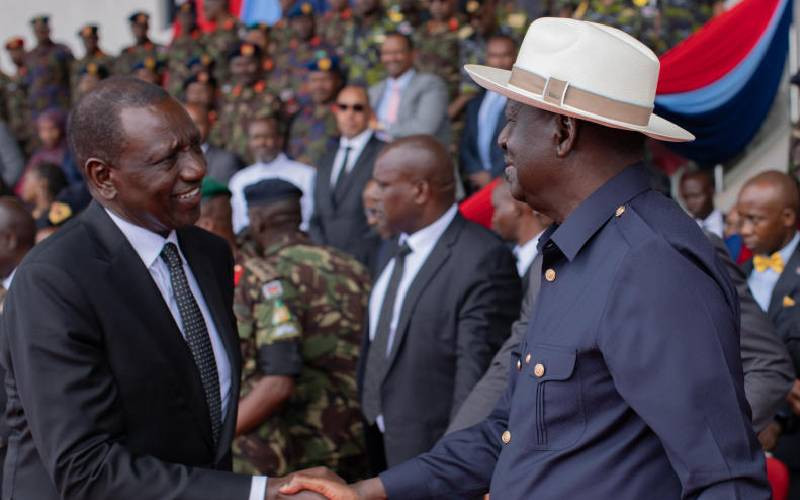
The rift between President William Ruto and his estranged former Deputy, Rigathi Gachagua, has sparked a political earthquake in Mt Kenya, pushing the Head of State to steer clear of the region.
In contrast, Ruto has shifted his focus to Nyanza and Western, where he’s been met with open arms and unwavering respect.
The President’s charm offensive to Nyanza and Western began a week before Gachagua’s impeachment started in the National Assembly, at a time when their relationship soured.
It was during Ruto’s trip to Nyanza in October last year that his allies used the tour to accuse Gachagua of trying to set traps for Raila.
In October, Ruto pitched camp in Nyanza for a four-day political and development tour.
He visited the Kisumu Shipyard, where he commissioned the MV Uhuru II, a vessel with a carrying capacity of 1,063 tonnes.
At the time, Ruto observed that Lake Victoria is a geo-strategic resource that must be optimised to reduce trade costs and enhance integration in East Africa, elevating the lake’s profile as a preferred maritime transport route and helping to exploit its vast untapped economic potential.
In Usenge, Siaya County, he inspected the Dhogoye Bridge and the roads along the Kisian-Usenge-Osieke route, which he said would connect Siaya and Busia and enhance regional trade.
He also launched the upgrading of the Bondo – Uyawi – Kibanga – Liunda Beach road in Luanda, Siaya County, to bitumen standards.
After Gachagua’s impeachment process, the President came face-to-face with his former deputy for the first time in Embu during the episcopal ordination and installation of Bishop Peter Kimani Ndung’u in November.
During the ordination, the congregation refused to cheer Ruto but gave Gachagua and former President Uhuru Kenyatta a heroic welcome at the Embu stadium.
Since then, MPs allied with and sympathetic to Ruto’s government have faced difficulties, being jeered at every time they attempt to address public functions
Even at social gatherings, such as funerals, they were booed and prevented from delivering President Ruto’s condolences to bereaved families.
Among the casualties were President Ruto’s economic advisor Moses Kuria, who was booed and halted while delivering a speech at a burial in Muranga, and Nakuru Governor Susan Kihika, who faced boos while attempting to read Ruto’s condolence message at a burial in Nakuru.
On Friday, Public Service Cabinet Secretary Justin Muturi was stopped by mourners in Embu from reading Ruto’s message to the family of Embu Senator Lenny Kivuti after the loss of their son, Eric Mutugi.
As the Mt Kenya region continues to protest any mention of Ruto’s name, the President has enjoyed cordial relations with Nyanza and Western, which may explain why he has turned to these regions, avoiding Mt Kenya since November 16 when residents jeered at him.
On December 27, Ruto attended the Genowa Governor’s Cup Tournament at the Raila Odinga Stadium in Homa Bay County, at the invitation of Governor Gladys Wanga.
During his visit, he announced his administration’s intention to renew investment in sports to broaden economic opportunities for the youth and steer them away from anti-social behaviour.
In Kisii, Ruto inspected the construction of the Kisii Cancer Centre, expressing dissatisfaction with its slow progress before ringing in the New Year at Kisii State Lodge.
On Thursday, Ruto was joined by Azimio leader Raila Odinga and Uganda President Yoweri Museveni, where they launched the 20,000-seater Jaramogi Oginga Odinga Stadium in Siaya County.They also attended a match between Gor Mahia and Uganda’s Kitara football club and the Piny Luo Cultural Festival.
Four days ago, the President was at Mumias Sports Complex in Kakamega for the Governors’ Cup 2024, hosted by Kakamega Governor Fernandes Barasa, to promote unity, sportsmanship, and healthy competition.
He also visited the Bukhungu Stadium, which is undergoing renovation.
On Friday, he was in Kabuchai for the burial of Ann Nanyama, the mother of National Assembly Speaker Moses Wetangula.
Before his Nyanza and Western tours, the President had visited Rift Valley in Bomet, Uasin Gishu, and Baringo counties.
Political analysts believe Ruto was looking for new ‘friends’ after Gachagua seemed to succeed in inciting his community against Ruto’s presidency following his ouster.
According to political analyst Mutahi Ngunyi, the plan will work because, based on his statistics, the Kikuyu community constitutes 30 per cent of the country’s population.
“Kikuyus are 30 per cent of voters. They have had the presidency or vice presidency for 61 years. Seventy per cent of Kenya will vote for Ruto with a landslide in 2027 without Kikuyus,” he claimed.
Ngunyi’s narrative appears to be echoed by Kenya Kwanza regime apologists who started by accusing Gachagua of being a tribalist but have since shifted the narrative to accuse the Kikuyu community of seeking to exclude other communities from the presidency for decades.
National Minority Leader Junet Mohammed, who addressed a gathering in Ruto’s Kilgoris home last week, claimed they were keen on ending the politics of entitlement and exclusion of some communities.
“There are some people who have been plotting against us to remain outside the government for reasons that I don’t know. We must end the politics of entitlement.
‘‘While we were in the handshake government, many wrongs were committed; close to 50 bodies were retrieved from River Yala, close to 600 people died in Shakahola, but we never heard people talk about dark days.
‘‘We shall bring an end to the politics of entitlement. We must allow other Kenyans to lead,” Mohammed stated.
Sirisia MP John Waluke, speaking at a separate event, said, “There is no abduction in this country, this is only a claim by a certain community that doesn’t want Ruto to be the President.
‘‘They also want to malign him. You know the community that thinks they are the only ones who are supposed to rule this country. We will not agree with them.”
According to analysts, the political class is merely trying to divert the attention of Kenyans from the real challenges, such as the high cost of living, controversies surrounding key government programmes like the Social Health Agency, and human rights violations like abductions, by reverting to ethnic-based appeals for the 2027 general election.
“The political class has realised that they have nothing to show for their legacy projects, and that is why they will try to regroup ethnic regions for their selfish gains in a bid to counter the issue-based campaign that will push the electorate to demand accountability,” noted Prof Gitile Naituli, a lecturer at Multimedia University.
He, however, maintained that efforts to shape the 2027 General Election narrative will not succeed, stating that the 2027 elections will be about issues, thanks to the increased involvement of youth in governance.
“Kenyans are now wise; they have moved away from tribalism as they believe their lives depend on a single economy. They suffer inflation, bad policies, and over-taxation, even when the topmost leader belongs to their community. The politicians’ move will backfire badly,” he concluded.
 The Standard Group Plc is a multi-media organization with investments in media
platforms spanning newspaper print operations, television, radio broadcasting,
digital and online services. The Standard Group is recognized as a leading
multi-media house in Kenya with a key influence in matters of national and
international interest.
The Standard Group Plc is a multi-media organization with investments in media
platforms spanning newspaper print operations, television, radio broadcasting,
digital and online services. The Standard Group is recognized as a leading
multi-media house in Kenya with a key influence in matters of national and
international interest.
 The Standard Group Plc is a multi-media organization with investments in media
platforms spanning newspaper print operations, television, radio broadcasting,
digital and online services. The Standard Group is recognized as a leading
multi-media house in Kenya with a key influence in matters of national and
international interest.
The Standard Group Plc is a multi-media organization with investments in media
platforms spanning newspaper print operations, television, radio broadcasting,
digital and online services. The Standard Group is recognized as a leading
multi-media house in Kenya with a key influence in matters of national and
international interest.


